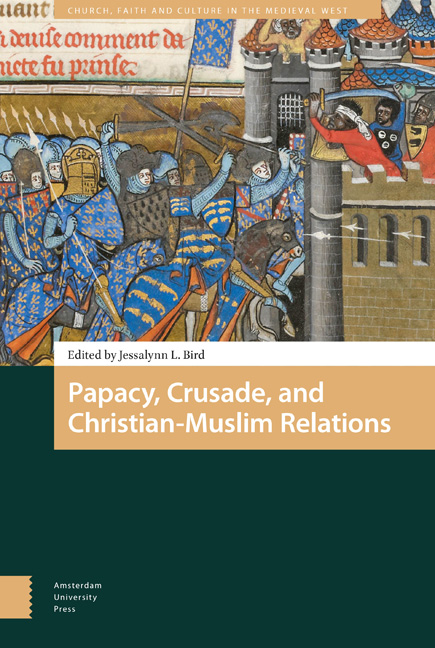4 - Tolerance for the Armies of Antichrist: Life on the Frontiers of Twelfth-Century Outremer
Published online by Cambridge University Press: 22 December 2020
Summary
Abstract
The ethos of holy war in the First Crusade depended in part on a rejection of Islam as a false religion inspired by Satan and connected to the eventual advent of Antichrist. For some European observers, eastern forms of Christianity were tainted by association with Islam. After the crusade, however, the survival of the nascent crusader states demanded frequent cultural and economic exchanges with Islam. King Baldwin I was especially instrumental in creating avenues of engagement with Muslims, Syrians, and Armenians. Western observers maintained the intolerant worldview of the First Crusaders. The growing cultural divide between the Franks of Europe and the Levant intensified Western indifference to the Levant on the eve of Hattin.
Keywords: Islam, Radulfus Niger, Templars, Fulcher of Chartres, Baldwin I, medicine, tolerance/intolerance
In the introduction to Muslims under Latin Rule, 1100–1300, James M. Powell spoke of ‘a growing realization of the inadequacy of the modern idea of toleration to explain the experience of premodern societies’. In place of a post-Enlightenment focus on the role of the state in regulating religious belief, Powell argued for a methodology rooted more in anthropological theory, one that concentrated on communal interactions, notions of status, and ‘the conferral of religious protection’ of one group upon members of another. This more nuanced approach he advocated there has since carriedthe day in studies both of the Frankish settlements in the Levant and in patterns of religious conflict and coexistence in the Middle Ages more generally. The particular question of Frankish–Muslim interaction in the early crusade era, however, raises questions of religious tolerance that challenge even the recent, more sophisticated interpretive models. The period of ‘Muslims’ docility’, to borrow a phrase from Benjamin Z. Kedar, that followed the brutal conquest of the First Crusade was in part a sign of the ability of the Frankish settlers to achieve a tenuous peace with their new subjects. But these new patterns of toleration – or perhaps simple forbearance – raised serious conceptual difficulties for veterans and partisans of the crusade movement. While most of the Frankish settlers in Outremer learned to live with these contradictions, Western observers found them troubling in ways that threatened to undermine the entire idea of crusading.
- Type
- Chapter
- Information
- Papacy, Crusade, and Christian-Muslim Relations , pp. 81 - 96Publisher: Amsterdam University PressPrint publication year: 2018



